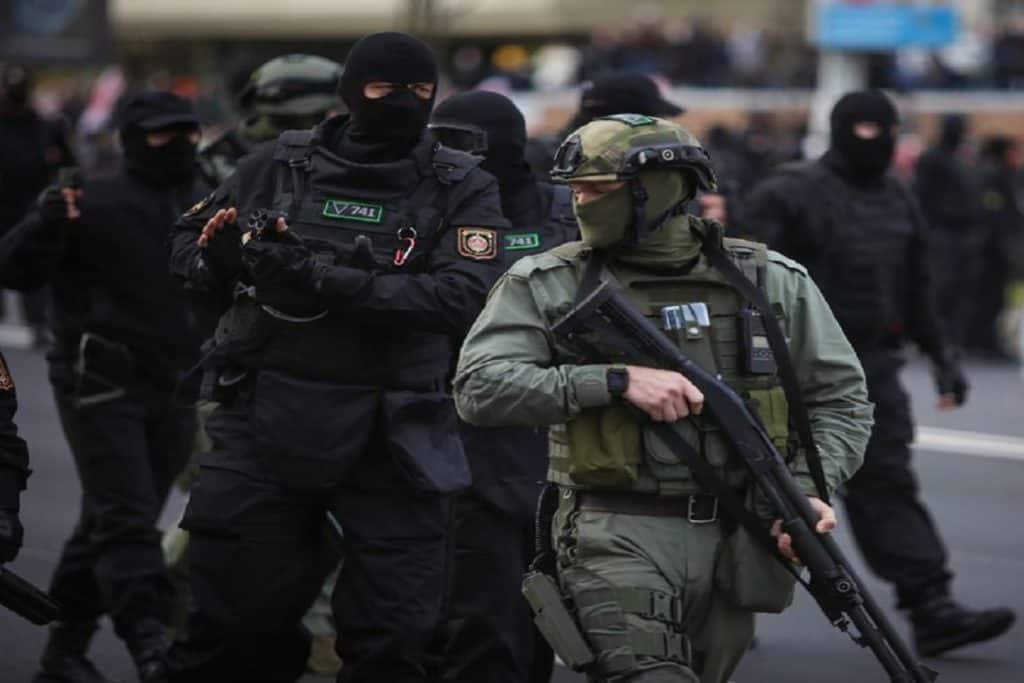By Dylan J. Pereira
Belarus can be classified as an organic statist authoritarian regime, led for 26 years by Aleksandr Lukashenko, whose geopolitical role in the region is fundamental.

In recent years, and especially in recent months, also due to the last disputed presidential elections, a climate of malaise has reigned for the development of a democratic and legal state, respectful of fundamental freedoms and human rights in its broad spectrum. The reasons: a superstate that permeates everything and begins to hypertrophy; an economic statism, which led to a profound economic and financial crisis; the censorship of the media; repression.
All this within the framework of a delicate balance of regional geopolitical interests and a foreign policy typical of a “buffer state” such as Belarus. Some analyzes claim that the coronavirus crisis meant for Minsk what Chernobyl was for the Soviet Union, with the unleashing a profound crisis in the Belarusian political system which, with a very controversial handling of the pandemic, proved that the regime not only it is unable to respond to the growing demands of social and economic actors, but it also puts the lives of its citizens at risk.
It is essential to pay attention to the rigor of political science in framing objectively the events occurring today in Belarus.The gestation of a complex and constantly evolving political process is undeniable. However, there is no evidence of a process of “liberation” by the regime of Aleksandr Lukashenko, understood as “the initial phase of a transition consistent with the process in which certain rights of individuals and social groups become effective in the face of arbitrary acts and illegal acts committed by the state (following the criterion of O’Donnell and Schmitter – 1988). In his last television appearance, Lukashenko posed with a flak jacket and an assault rifle, while the Belarusian KGB violently repressed the protesters in Independence Square , despite repeated calls from the European Union and other members of the international community.
The political crisis in Belarus has great geostrategic significance due to its geographic location in Europe. Belarus is a perfect example of a “plug state” in the complex threads of international politics. After the dissolution of the Soviet Union, Belarus sought to combine its strong ties with Russia with an independent foreign policy as much as possible. However, close cooperation between Moscow and Minsk has developed into political, financial, technical and military assistance. Despite this, Aleksandr Lukashenko did not neglect his relations with the West. The geopolitical position of Belarus is worth noting: it is an important route for its neighbors, members of the EU and NATO, such as Lithuania, Latvia or Poland. And through its territory there are pipelines through which Europe is fed by Russian oil. Therefore, what happens in Belarus is crucial for the military, strategic, political and economic security of both Russia and the European Union.
The methodology adopted in the recent popular protests is similar to that described in the manual of the 198 methods of non-violent struggle, proposed by the American Gene Sharp “the writer who overthrows dictatorships with books”, who is credited with being the inspiration and the mind of revolutions around the world.
However, what makes us wary that the future of the protests resembles a “color revolution”, such as those that took place in Ukraine and Armenia, is that there are fundamental differences between, for example, the case of Ukraine in 2014 and Belarus in 2020. Minsk is perhaps one of the last places in the world where the USSR never seems to have fallen. The iconography of Soviet heroes and the glorious ephemeris of yesteryear, to which the post-Soviet Belarusian elite still aspires, is preserved, even if condemned by contemporary young people. The economy remains nationalized. Russian is practically the national language, reserving the local dialect for a simple formalism, while the Belarusian parliament is the only parliament, of the former states of Soviet Union, that voted against the dissolution of the USSR. In other words, the protests in Kiev were pro-European, with the demand for a transition to democracy, and with a total openness to the European values and system. But for its part, Belarus is pro-Russia, in a broad sense. So everything points to the ideal of a transition of a nationalist nature, that will aim at the involvement of important dissidents, if any, within the government of Aleksandr Lukashenko.
The current opposition rallies around the hasty leadership of Svetlana Tijanóvskaya, now exiled to Lithuania, from where she claims victory in the presidential elections on 9 August 2020. The European Union has not recognized the electoral result according to which Lukashenko won with an 80 percentage of votes. Also the European Commission has introduced variables to the complex dynamics also by providing for international sanctions, at the moment only for officials of the Minsk regime, accused of violating human rights through the violent repression perpetrated by the Belarusian KGB, which has already arrested more than 7000 demonstrators, and the expulsion of international media correspondents, reasons for which the opposition has already filed a case in the International Criminal Court (ICC) in The Hague against Alexandr Lukashenko.
The European Union, with the exception of Poland or Lithuania, which have recognized Svetlana Tijanóvskaya as president (in the style of Juan Guaidó in the Venezuelan case), is committed to calling new presidential elections as a key to the democratic transition.
One factor that could tip the balance, even if we are not sure, would be the US or EU sanctions against Belarus as a state. The country was in financial trouble even before the elections and needed to borrow up to $ 3.3 billion in 2020 alone to honor its foreign debt. The sanctions, coupled with the constant devaluation of the Belarusian ruble, could be a “real storm”.
The membership of Belarus in the OSCE (Organization for Security and Co-operation in Europe) could facilitate the opening of external mediation in the face of the alleged impossibility of mediation between the regime and a still dispersed opposition. Germany and France seem to be pointing in this direction.
If the scenarios described above were followed, an internal transition could take place within the regime itself to alleviate the demands of national opposition and international pressure, perhaps transferring power to a younger member of the party. However, this would not guarantee the end of the protests, since it does not solve the root of the problem: the popular demand for a democracy.
Above all, there is an inevitable need to consider the opinion and actions of the Kremlin, whose little action on the field of events strongly attracts attention, leading some analysts to consider that Putin is watching as a spectator until the time comes to be the leader of an eventual transition, finally leaving behind the shades of neutrality of present-day Minsk, and advancing with the plan of Russian military bases in the country with the consequent expansion of the area of influence. But even this seems unlikely.
Although the regime of Aleksandr Lukashenko is in crisis, it has not yet occurred a situation of instability and ungovernability, in which a dispersion of political actors is manifested, and the inability of the political regime to guarantee government to the system appears. What is true, however, is that there is a crisis of credibility in the dominant political regime, which is apparently rejected by the majority of citizens, and which is also beginning to lose the social, political and cultural support it has received up to some time ago.
Author: Dylan J. Pereira (Diploma in Diplomacy and International Relations from the Euro-American Diplomatic Academy. Editor of Diplomacia Magazine. Guest analyst at Brújula Internacional, Caracas, Venezuela).
(The views expressed in this article belong only to the author and do not necessarily reflect the editorial policy or views of World Geostrategic Insights).







